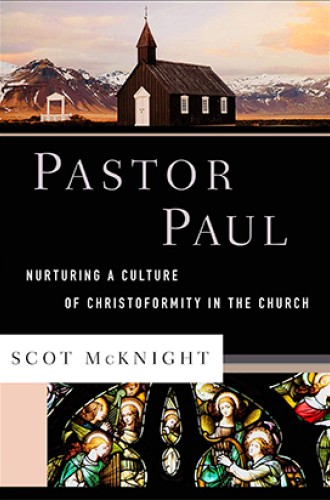Shaping a place where people can become more like Christ
Scot McKnight looks to Paul to define the pastoral task.
In the best kind of way, this book makes me feel like I’ve not been much of a pastor. I sit in my clerical collar, in my church office, alongside several bookshelves filled with many books about the church and ministry. Very pastor-like. But have I been pastoring? If these sorts of things—or even the fact that I preach more than 40 Sundays a year—don’t assure me that I am pastoring, what does?
Scot McKnight sees a model for pastoral ministry on display throughout Paul’s letters, and he suggests that Paul’s ministry centers on one essential task: Christoformation, that is, forming a culture in which people can be conformed to Christ. Across Paul’s letters, McKnight sees a concerted effort to nurture a culture in which such conformity can take place.
This, then, is what assures me that I am pastoring, at least in a Pauline key. Pastors are pastoring when their work is geared toward nurturing and tending a culture of Christoformity. It’s the kind of work that Jason Byassee and Matt Miofsky describe as “forging a crowd into a church.”






